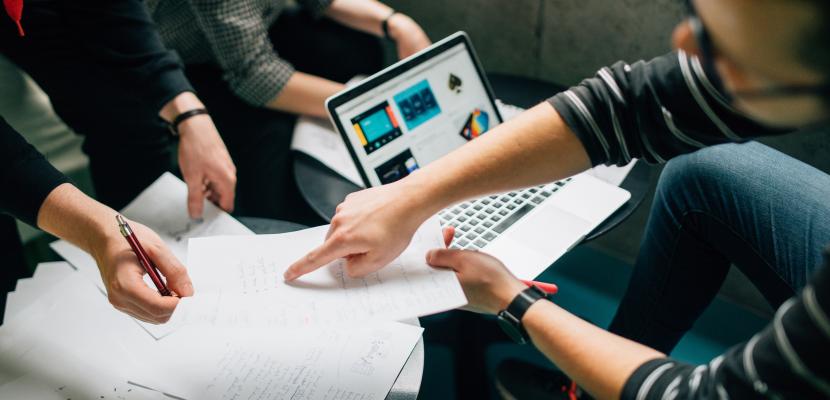Image

RapacinOnline: Reuse of computers for their assignment to students with few resources
Published on 26 January 2021

Spain
Principado de Asturias
This is the good practice's implementation level. It can be national, regional or local.
About this good practice
The project consists of the creation of a network made up of the public administration, municipal companies, schools, non-profit organizations and families.
In this way, those citizens who have computer equipment in good working order, but which are in disuse because they have been replaced by other more modern and current equipment, donated it at collection points, such as the Reusapp Space in Gijón, CAS or regional technology centers.
Subsequently, the non-profit Association, Hacedores & Makers, altruistically, proceeds to review the equipment, erase hard drives and leave them working.
The equipment is then temporarily transferred (during a school year) to schools that have previously requested it for delivery to students who for different reasons cannot afford to purchase equipment.
In this way it is achieved, not only to avoid and prevent the generation of electronic waste through its reuse, but also to minimize the technological gap existing in today's society, as well as to ensure that students can follow the school rhythm in those cases in which to the current situation regarding COVID-19, it is necessary to carry out part of the classes electronically.
To date, the collection campaign has been framed within the European Waste Prevention Week, having made EMULSA a strong commitment to communication and information.
A web platform has been created with information about the complete process and the collection points so that the project can continue permanently
In this way, those citizens who have computer equipment in good working order, but which are in disuse because they have been replaced by other more modern and current equipment, donated it at collection points, such as the Reusapp Space in Gijón, CAS or regional technology centers.
Subsequently, the non-profit Association, Hacedores & Makers, altruistically, proceeds to review the equipment, erase hard drives and leave them working.
The equipment is then temporarily transferred (during a school year) to schools that have previously requested it for delivery to students who for different reasons cannot afford to purchase equipment.
In this way it is achieved, not only to avoid and prevent the generation of electronic waste through its reuse, but also to minimize the technological gap existing in today's society, as well as to ensure that students can follow the school rhythm in those cases in which to the current situation regarding COVID-19, it is necessary to carry out part of the classes electronically.
To date, the collection campaign has been framed within the European Waste Prevention Week, having made EMULSA a strong commitment to communication and information.
A web platform has been created with information about the complete process and the collection points so that the project can continue permanently
Resources needed
Web page with information about the donation process and collection points.
Places where collection take place.
Operators who are in charge of collecting and taking data for correct traceability.
Company that performs inventory, equipment review, data erasure and equipment reconditioning.
Places where collection take place.
Operators who are in charge of collecting and taking data for correct traceability.
Company that performs inventory, equipment review, data erasure and equipment reconditioning.
Evidence of success
214 computer equipment (laptops, CPU, printers, monitors, tablets, etc.) were collected
With all these individual elements, we were able to fix 69 complete computers (1 complete computer= monitor, CPU, printer, keyboard and mouse).
All these 69 complete computers were donated to 8 diferent public schools. Each one of them was subsequently handed over to a student with economical needs.
With all these individual elements, we were able to fix 69 complete computers (1 complete computer= monitor, CPU, printer, keyboard and mouse).
All these 69 complete computers were donated to 8 diferent public schools. Each one of them was subsequently handed over to a student with economical needs.
Potential for learning or transfer
The project is easy to replicate in other regions, not requiring a high amount of money to get it started.
Likewise, on the one hand, the objectives of the circular economy are combined, avoiding that said computer equipment ends up being waste, while having a high social component, since it seeks that possible vulnerable groups can have the necessary tools to have access to non-face-to-face training, something that due to the current situation of COVID-19 occurs more and more frequently.
Likewise, on the one hand, the objectives of the circular economy are combined, avoiding that said computer equipment ends up being waste, while having a high social component, since it seeks that possible vulnerable groups can have the necessary tools to have access to non-face-to-face training, something that due to the current situation of COVID-19 occurs more and more frequently.
Further information
Website
Good practice owner
You can contact the good practice owner below for more detailed information.
Organisation
Regional Government of Asturias

Spain
Principado de Asturias
Contact
Head of Waste Management Service
